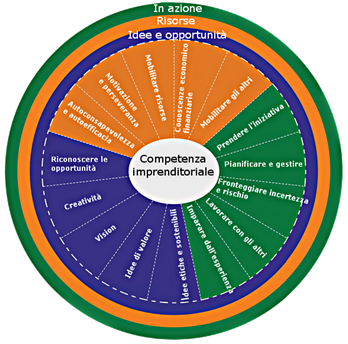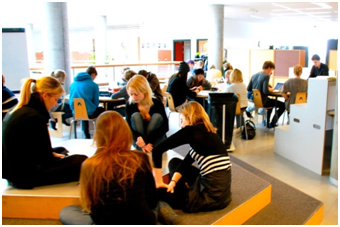ABSTRACTS – 3rd SESSION

Entrepreneurship is a lifelong competence. How EntreComp can help teachers fostering it.
Margherita Bacigalupo – Elin McCallum

To thrive in today’s world we all need to be resilient to the changes that we are constantly exposed to. Be it for the pervasiveness and speed of digital transformation, climate change, or global migration fluxes, the only certainty we have is that tomorrow will be different from today in all aspects of life.
For more than a decade, the European Commission has been promoting lifelong learning and a competence-oriented approach in education and training, so as to afford every learner the chance to develop the mix of knowledge, skills and attitudes that are required to positively face the challenges these transformations bring about.
In 2006 the European Commission has identified eight key competences, which – together – enable citizens to actively take part in society, including in the labour market.
Entrepreneurship is one of such key competences, one of the three for which a reference framework has been developed.
This presentation will illustrate the Entrepreneurship Competence Framework (EntreComp), its three areas and fifteen competences, which include creativity.
It will introduce to the audience a few case studies and tools to inspire them in using EntreComp in their educational practice.

Vip24: a structural and holistic tool for qualified career choises
Trude Johansen – Charlotte Berg

Our presentation will illustrate the vip24-program, a structural and holistic tool for qualified career choices.
This program builds on the principle that meaningful use of your own resources is an important source of enforced health, motivation, ability and study or work satisfaction.
The method is characterized as an education career-guidance or work guidance in a healthy perspective.
It considers values, interests and preferences in the 24-hour perspective of our lives.
The focus of the program is on the individual’s strengths and opportunities.
We base our service provision on each person’s individual needs for assistance.
We also coach drop-outs and young people that need a direction in life.
We will illustrate both the theoretical basis of this tool and practical examples of how to use it.

21st Century Learning Design
Mette Hauch
- What are crucial skills needed today and for the future and how do we do we support the development of these skills?
- How can we work with creativity, entrepreneurship and 21st Century Skills both in the classroom and on a national scale?
- What changes are needed in the way we organize learning experiences and even how we design the physical spaces?

Mette Hauch, who is a leading expert on 21st Century Learning Design and also serves as an advisor to the Ministry of Education in Denmark, will be taking you through her approach to these questions.
She will share her work on 21st Century Learning Design both inside Danish schools and on a national level with focus on creativity and entrepreneurship, based on trust, student voice and fostering motivation within the students.

Student Entrepeneurship
Armando Persico – Edoardo Pennacchia
Armando Persico is a teacher who has always used the learning by doing method with his students, in particular the EU entrepreneurship approach, here described by Margherita Bacigalupo.
His presentation will start with two short examples of mini-companies created by his students, experiences which changed their mindsets.
The first, Autorainbow, was created by the students of one of his classes at Imiberg secondary high school in Bergamo in 1999. The second, Star Light, was created in 2004 (a short videoclip of it will be shown).
The result of this method is that the 20% of his students has started an entrepreneurial activity ( the Italian and European rate is about 3%).
Through these experiences, Armando Persico wants to show that it is possible to fill the gap between school and labour market.
It will also be also presented the new model of Italian tertiary vocational training run both by universities and tertiary not academic institutions such as ITS (Istruzione Tecnica Superiore). This presentation will be done in comparison with a) the German dual system and «Fachhochschulen», b) the Canadian model of tertiary non academic vocational training.
The presentation will be concluded by Edoardo Pennacchia , a former student of Armando Persico, who, in 2016, as soon as he got his diploma, he created a company of web marketing, SeoBay.it, together with a mate of his.
<Back to 1st session abstracts



